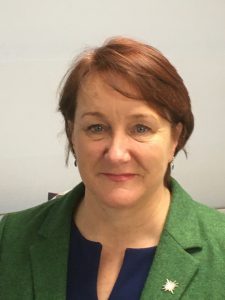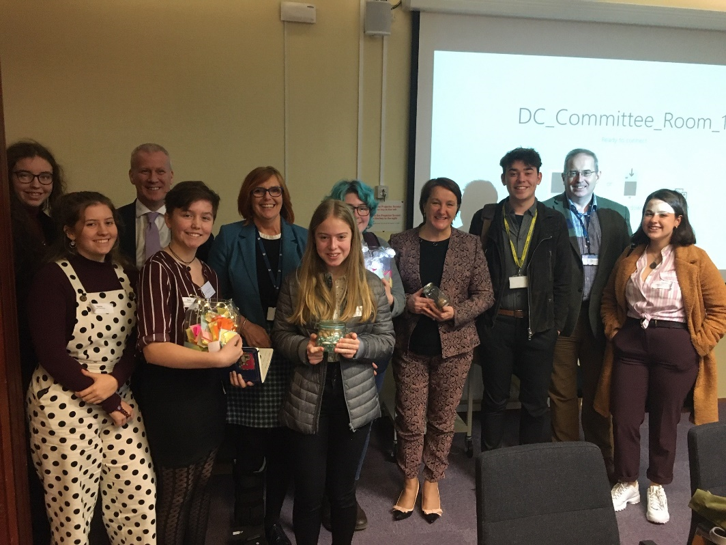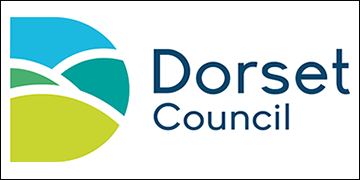Dorset Council’s executive director of children’s services (DCS) has just come back from meeting a young, single mum who has no family support and is concerned about how her newborn is weaning.
She is one of hundreds of people Theresa Leavy has visited over the last few weeks since becoming the new DCS at the beginning of 2020. Her visits to different teams within children’s services, the wider council departments and her direct engagement with the public, are all part of the council’s strategy to make Dorset the best place to be a child, and a place where families are supported. This promise is a component of the wider ‘Blueprint for Change’ initiative, which looks at boosting its collaboration with communities, focusing on people’s strengths and restoring relationships.
As detailed in Dorset’s 2019 focused visit report, the aim is to remove barriers for social workers when working directly with children and families, such as travel time and includes placing social workers in localities and increasing the capacity for workforce development and quality assurance.
Community engagement

Theresa Leavy DCS
Theresa has extensive experience in leading children’s services and has previously held leadership positions in Cambridgeshire and Wiltshire and knows you can’t start listening to people soon enough.
“I have been meeting with foster carers, I’ve been to schools and met with parents and children and gathering this feedback to impact change. People have been really generous in sharing the strengths as well as the challenges.”
This shift towards engaging more with the community is one that Theresa is not doing alone. Staff at all levels and across a range of disciplines are embracing the change too.
“Senior management have been on school buses and others have accompanied police and health colleagues, to better understand what their challenges are and how their work can improve,” says Theresa.
“We increasingly need our professionals to understand the broader systems our families and children live within. If social workers understand the role of others in different departments, this can go a long way towards ensuring that vulnerable families get the help they need the first time around.”
Theresa wants to lead a cultural shift in ensuring family decision making is at the heart of all interactions – this may be daunting but the approach is already reaping rewards. Staff take ownership and responsibility for identifying people’s needs and strengths. Increasingly, feedback from families is positive with many experiencing a respectful and helpful response.
A detailed development programme for staff is under construction to support the new ways of working. Bite-sized lunchtime learning workshops run weekly and from March, well be live streamed. Workshop topics have already covered county times, drug dealing, child exploitation and permanency planning for children in care.
“None of us start out as experts on more than just our own field,” Theresa says. “But part of our new training is to get people to understand others’ roles, and how a more collaborative approach can improve the support to Dorset’s families and children.”
Listening and learning
Much of Dorset’s work involves using a ‘one team’ approach that reflects the council’s relatively new structure (since 2019) as a unitary authority. This structure replaces the old county council and six district councils. Social workers will be located and integrated alongside early help and education colleagues across Dorset’s six localities in Dorchester, Weymouth, Wareham, Ferndown, Bridport, and Blandford and Sturminster Newton where they will have a local focus but will be working in an integrated, multi-professional and multi-agency structure.

Young people in Dorset leading one council service reform
“The idea is that if, for example, you know that you have some element of county lines or child exploitation in your locality, you will have all of the team resources at your fingertips to deploy an integrated response from all the council departments responsible. Our social workers will be embedded in the community and will be a much closer point of contact than them being situated in county hall,” says Theresa.
Longer term, Dorset is looking to work in an even more integrated way with partner agencies to take the best of the family safeguarding model from other parts of the country to develop its own.
“We are really pleased to have been able to secure significant investment in children’s services including the development of a dedicated residential hub and a wrap around adolescent support service. We are also developing an enhanced range of support and accommodation for our care experienced young people.”
Enabling technology
Not all the localities have the same needs. Some are more rural than others, but this is an opportunity for social workers to help to shape responses to the needs of that population. So, in cases where access to services could be challenged because of rurality, Dorset is working to roll out more app technology that arms families with more information on how they can lead on meeting their care needs.
Currently, there is an app that has been developed that enables families with children with special educational needs to track the progress of education, health and care plans.
“We have had great feedback from families who have been able to track the progress of these plans,” Theresa says. “Another benefit is that families are getting access and information about their experiences and SEND teams are then able to prioritise these needs. Staff are saying they want more of that kind of feedback.”

Theresa believes a similar model could be developed for people like the young mum who expressed concerns about weaning her baby with the development of an online portal that could support deliver early help.
Ordinarily, when a young mum has a baby, family and friends are the first port of call. But in situations where the mother doesn’t have that support system, it is far more likely that she would access information from the internet. Having an online portal would ensure that these concerns can be managed appropriately by our early help teams, Theresa says.
For now, the plan is to continue collating the experiences of families to shape children’s services. “I genuinely believe that Dorset has the ability to be an outstanding authority in delivering great services to all of its children and families,” says Theresa. “We are not there yet and this is an opportunity for social workers to join an authority that is on a journey to be delivering good services to everybody.”
Read other articles from Dorset here:




 Facebook
Facebook X
X LinkedIn
LinkedIn Instagram
Instagram